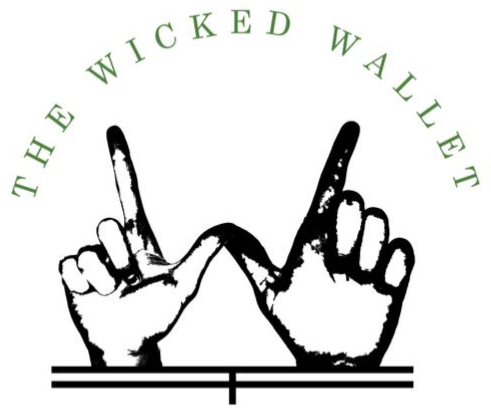Well, is it? Does your bank take advantage of you? Do you constantly get hit with random fees or receive an interest rate that is practically 0%? The unfortunate truth is that there are a lot of greedy banks out there that screw you out of money. However, the fortunate truth is that there are a handful of banks that do right by their customers and operate in your favor. More good news is that we will review which banks are looking out for you and how to know if your bank is screwing you in this article. But first, let’s talk about how banks make their profits.
When you deposit your money into a bank account, the bank pays you a small percent of interest on that money. In return for securing your money safely and paying you a small amount of interest, the banks then lend out your money to other people at a much higher interest rate.
For example let’s say your savings account interest rate is 1%. The bank then goes and lends that money to someone looking for a mortgage and they charge them 5% interest. The difference between the interest rates is known as the spread and this is where the banks make their profits.
The majority of people would think that’s a fair trade, the bank has to make money too. I would totally agree and say that it’s perfectly fine if this is how the bank makes their money. But what I’m not fine with and what you should not be fine with is the hidden fees that banks charge you.
Fees, Fees, & More Fees
If you’ve never encountered any form a bank fee then consider yourself one of the lucky ones. There are a lot of banks out there that make a TON of money by charging their customers numerous fees.
Some examples of bank fees are:
- Overdraft fees
- ATM fees
- Minimum balance fees
- Transfer fees
- Maintenance fees
All of these fees can really add up and if you encounter just one of them you may completely lose out on any earned interest from your bank. Don’t worry though, these fees can be completely avoid by using the strategy outlined below.
A Simple Phone Call
If you are currently enrolled with a bank that charges you fees like the ones mentioned above then I highly recommend you give them a call.
When you get through to a representative tell them that you’d like to switch to a no fee account. It’s important to remember that banks spend hundreds if not thousands of dollars on client acquisition costs and do not want to lose you.
So when the rep responds and tells you that they are not currently offering that type of account then simply tease about leaving them. Tell them that you like working with them and you don’t want to take your business elsewhere, but “insert random bank” is offering the no fee account you are looking for.
Since banks spends so much on acquiring new customers they really don’t want to lose current customers, especially when it’s easy to keep them. The rep in this scenario will probably go talk to their supervisor and come to the conclusion that they can in fact offer you this account.
This entire phone call should take no longer than 15 minutes and boom your account no longer has fees attached to it. Seriously don’t be lazy, just make this simple call. It’s such an easy way to save you money. If your current bank isn’t willing to bend or you’re just fed up with them then you should consider working with the banks listed below.
Checking Accounts
Your checking account is generally where you receive direct deposit payments and is also attached to a debit card. Your checking account is used for receiving, transferring and spending money it’s where you manage your income.
A checking account operates similarly to your weekly trip to the grocery store. After you’ve already done the shopping you come home with a bunch of grocery bags. Then you organize those groceries; you put food in the freezer, food in the fridge, food in the cupboards, toiletries in the bathroom, and then you what you are going to eat.
With a checking account you receive income then transfer money for bills, for savings, for investments, and then you decide your spending budget. Funds in a checking account are meant to be fluid unlike a savings account.
Savings Accounts
As mentioned above, funds in a savings account are not meant to be fluid. Money in a savings account is meant for saving. Because your savings account is not mean to be fluid there is almost always an interest rate attached, which means you get paid for having your money in the bank.
Don’t get too excited though as these interest rates are very low and won’t have much of an impact on your money.
That’s why your savings account should not be used as an investment vehicle. Instead it should be used to save for short-term goals such as paying for a wedding. If you have an abundance of money in your savings account you should consider moving that money to higher yielding investments. For some ideas check out this article, How Should I Invest My Money.
Banks to Consider
After doing a ton of research I’ve found that these banks are your best bet for checking/savings account.
Capital One 360:
Offers excellent fee free checking and savings accounts and is simple to use. The cost of opening a checking/savings account is $0 which is how it should be. Plus the savings account interest rate is 1%. They also offer 40,000 ATMs worldwide that charge no fees to use!
One of my favorite features with the Capital One 360 savings account is the sub savings account feature. This allows you to subdivide your savings which is awesome if you are saving towards multiple goals.
For example if I’m saving for a house down payment, new car, and a rainy day then I can create 3 sub accounts for each of these goals. Then you can take it a step further by automating your allocations from your deposits.
Let’s say that every time you deposit money into your savings account you want 50% to go to your house down payment account, 25% to your new car account, and 25% to your rainy day account. With the Capital One 360 account this is possible simply set it and forget it.
Charles Schwab Bank:
Schwab bank offers great fee free checking/savings accounts with it’s best feature being unlimited ATM rebates. That any usage fee that any ATM in the world charges you will be refunded by Schwab. If your a traveler then you know all too well how fast these aTM fees will add up.
Some things to know about these accounts: 1) you will need to open a Schwab brokerage account and 2) you are not able to deposit cash.
Don’t freak out though, opening a brokerage account is super easy and once you open it you are not required to do anything within that account. The cash thing is definitely something to consider. If you are a someone who needs to be able to deposit cash then this account is not for you.
Ally Bank:
Ally Bank is another awesome bank with practically zero fees and no minimum deposit to open an account.
The current savings account interest rate is 1.90% which is top of the market. Plus you have free ATM usage at any AllPoint Atms in the U.S and a $10 monthly rebate for other ATMs.
Some things to note: 1) you can’t deposit cash and 2) you are only allowed to make 6 withdrawals from your savings account each month.
Again if your someone who deposits cash regularly then this isn’t the right bank for you. The 6 withdrawal limit shouldn’t be an issue if you manage your money properly and use your savings account for saving not spending.
Closing Thoughts
There are a ton of banks out there and some are a lot better than others. Have you ever considered your options, or have you just stuck with the first bank account you opened in high school?
There are a lot of banks out there that charge ridiculous fees, offer low interest rates, and do untrustworthy things. Some of the big banks such as Wells Fargo and Bank of America have been blasted by news media for doing sketchy things like opening up fake accounts in their customers names. Not to mention the savings account interest rates they offer are ridiculously low. I personally would stay away from these banks.
All in all do your homework and find the best bank for you. For more information on different banks and what they have to offer you can check out these great resources: Thebalance.com, and Nerdwallet.com.
For more great reads from The Wicked Wallet check out these:



